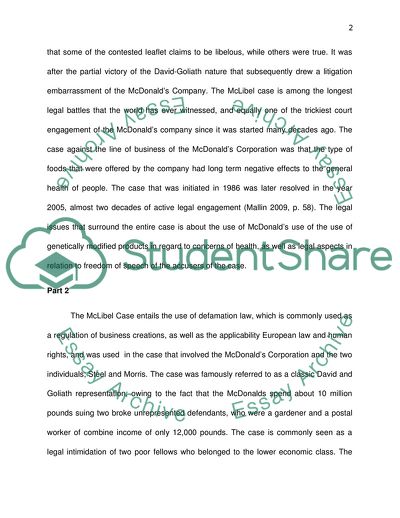Cite this document
(The McLibel Case Lawsuit Report Example | Topics and Well Written Essays - 2250 words, n.d.)
The McLibel Case Lawsuit Report Example | Topics and Well Written Essays - 2250 words. https://studentshare.org/law/1828651-mclibel-documentary-individual-written-examination
The McLibel Case Lawsuit Report Example | Topics and Well Written Essays - 2250 words. https://studentshare.org/law/1828651-mclibel-documentary-individual-written-examination
(The McLibel Case Lawsuit Report Example | Topics and Well Written Essays - 2250 Words)
The McLibel Case Lawsuit Report Example | Topics and Well Written Essays - 2250 Words. https://studentshare.org/law/1828651-mclibel-documentary-individual-written-examination.
The McLibel Case Lawsuit Report Example | Topics and Well Written Essays - 2250 Words. https://studentshare.org/law/1828651-mclibel-documentary-individual-written-examination.
“The McLibel Case Lawsuit Report Example | Topics and Well Written Essays - 2250 Words”. https://studentshare.org/law/1828651-mclibel-documentary-individual-written-examination.


